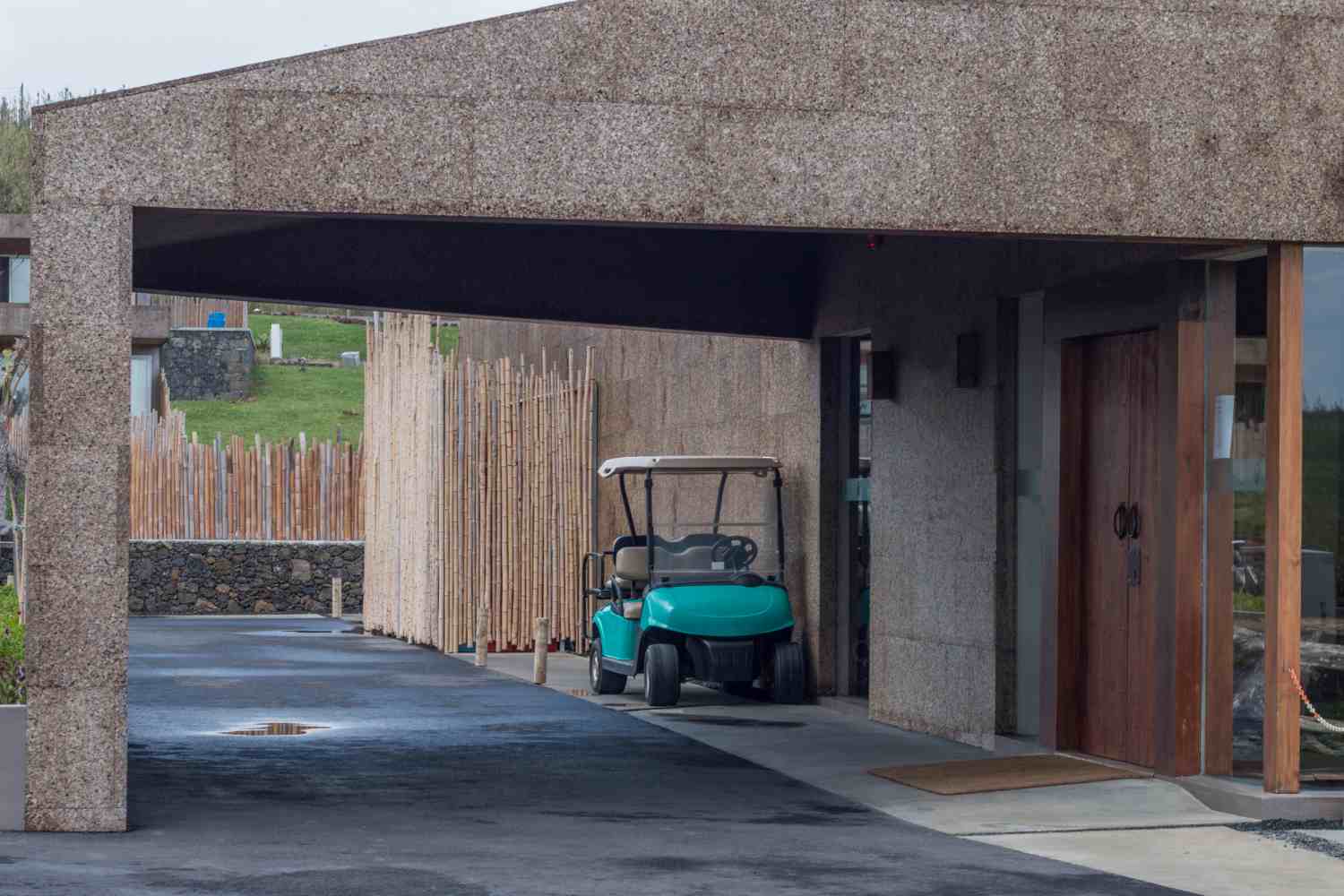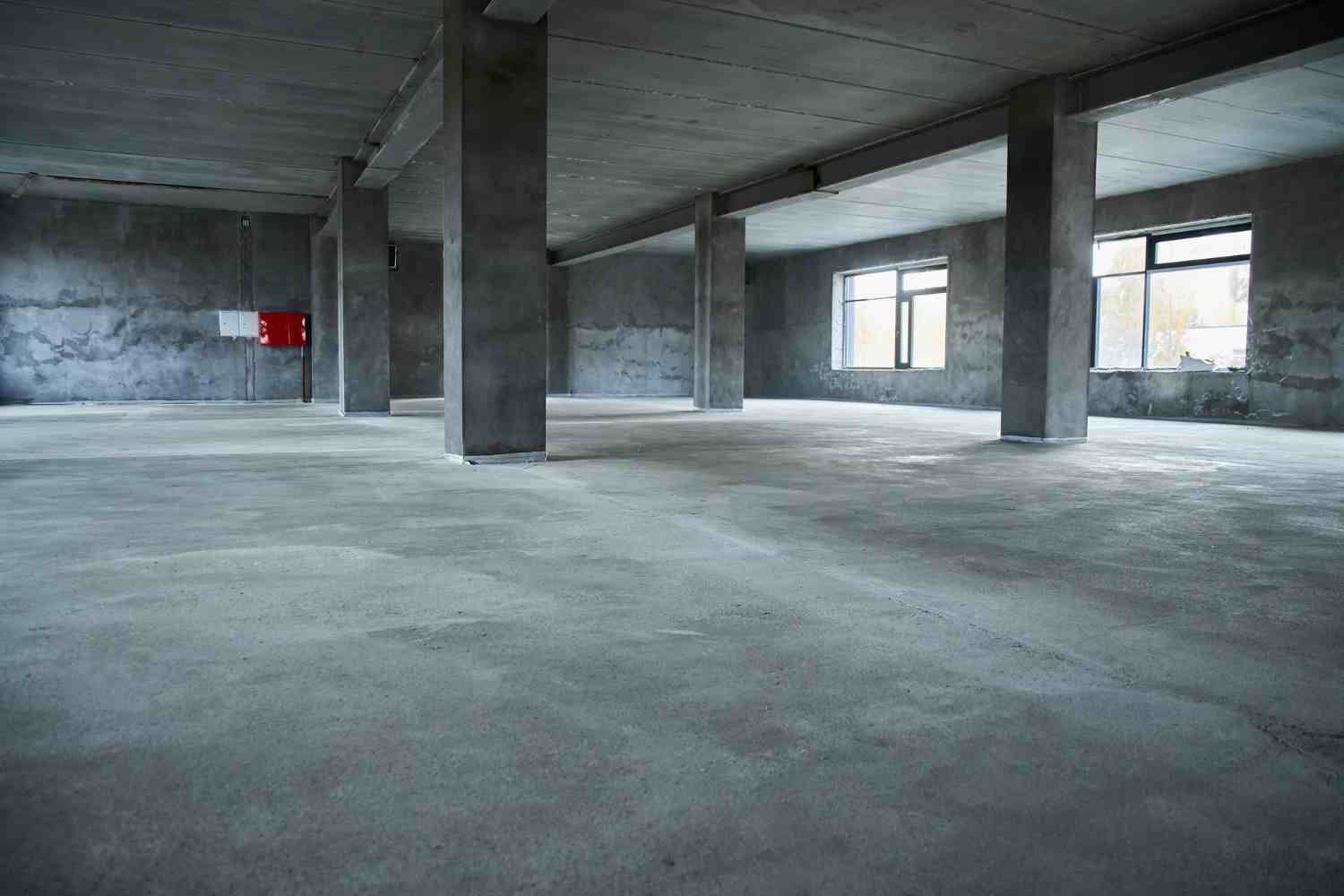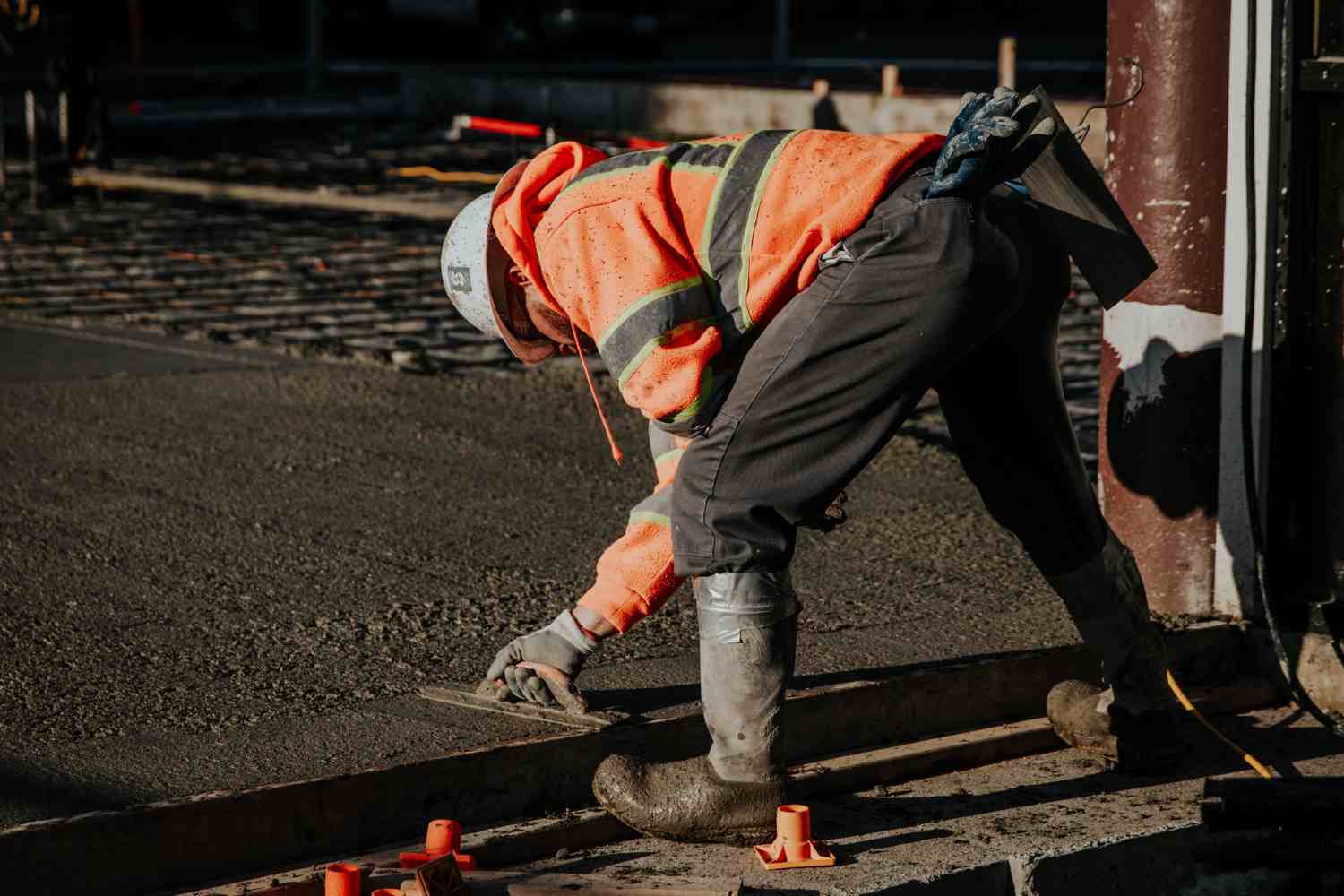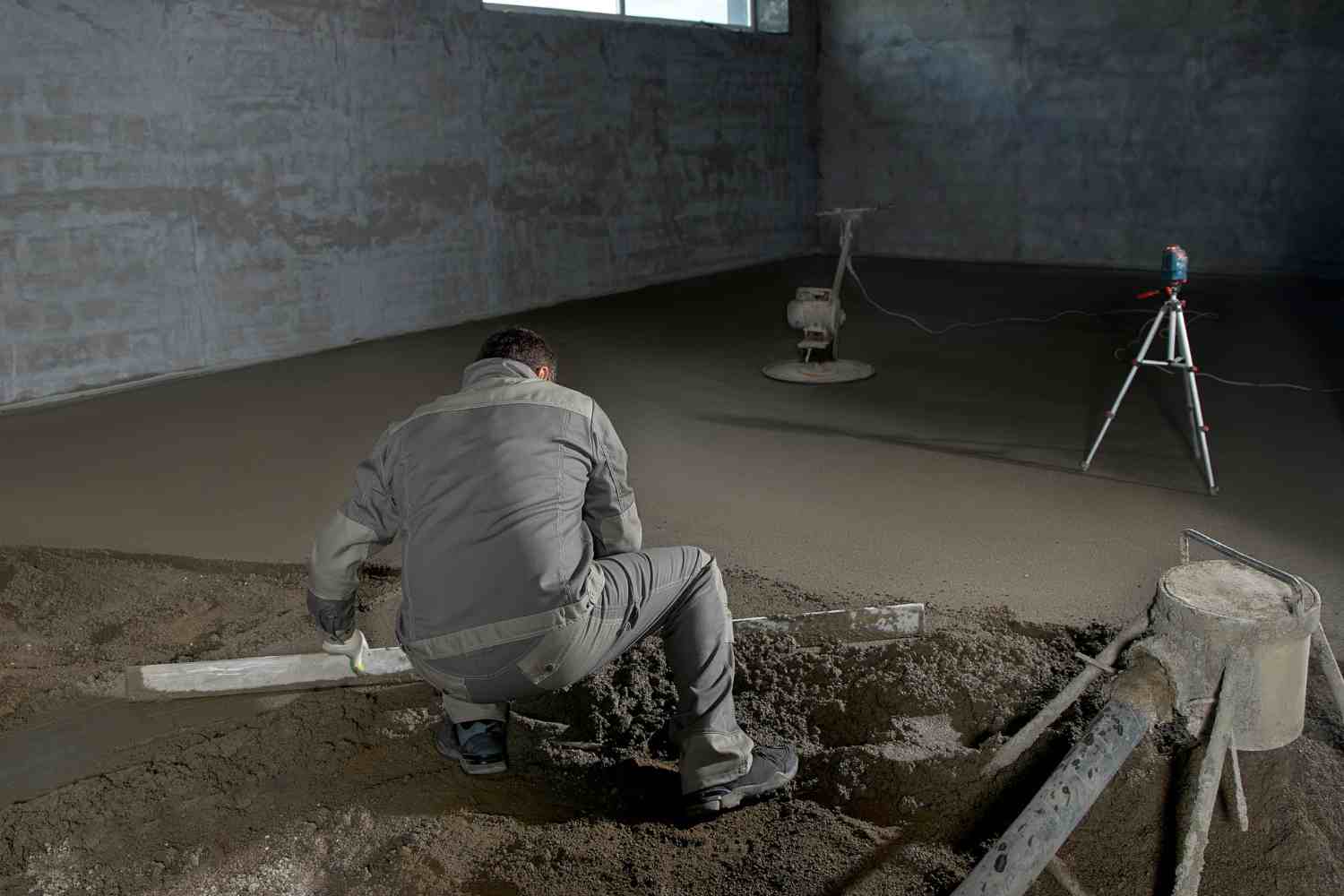You need to thoroughly plan before starting garage construction and choose the right type of concrete for base formation. It is essential to lay a stable and durable garage base that lasts several years, providing a firm platform for parking your vehicle and storing other things, such as tools.
A high-quality, long-lasting, and neatly finished garage is worth the invested money. It provides you with extra storage space and enhances the property value.
In this article, you will learn about the benefits of concrete garage floors and various types of concrete. Moreover, you can also explore the crucial factors you must consider before choosing the right type of concrete for your garage floor.
Concrete is one of the best options to replace the entire garage floor or lay a new surface in your garage. You might need to replace the garage floor when it gets old or damaged. The benefits of using concrete include:

The following are the major types of concrete:
It contains tiny air pockets, allowing easy expansion and contraction without causing cracks in the base during freeze-thaw cycles. Therefore, this type of concrete is suitable for installation in areas with cold climatic conditions, and the concrete used in garages should be 5-7% air-entrained.
It adds a decorative touch to the garage floor, allowing staining, colouring, or texturing to attain different visual effects. You can select this type of concrete for your garage to make it aesthetically pleasing for your senses.
It consists of fibrous materials, due to which it is highly durable and crack-resistant. It is one of the cost-efficient options for installation in domestic properties’ garages.
It has a higher cement-to-aggregate ratio and is suitable for base formation in commercial properties’ garages as they bear heavy loads. It is durable and provides strength but is expensive to buy.
It comprises Portland cement, sand, and 10mm or 20mm gravel. It is commonly used for the base formation in residential garages as it is affordable and offers greater strength.

These are some other types of concrete which you can consider while choosing one for your garage floor:
It is a popular concrete type commonly utilised in light-duty domestic properties’ garages that do not have to deal with heavy loads.
It provides greater strength and is highly durable. It helps to lay a hard-wearing and sturdy base for your garage.
It is mainly used in domestic garages and is one of the most potent concrete options, making it suitable for manufacturing ground floor slabs of the garage. Therefore, this high-strength concrete mix is ideal for heavy-duty application garages.
It has suitable applications in domestic garages with lighter-duty weight. It helps to lay a strong base for garages and domestic workshops.
It is usually used in commercial properties’ garages as it better withstands heavy vehicles and machinery.

There are some crucial factors which need critical consideration before choosing a particular type of concrete for your garage, such as:
Your budget is one of the most critical factors for selecting the correct type of concrete for your garage base. For this purpose, you should compare the prices of different types of concrete and select the one which suits your budget.
It would help if you explored the durability of different types of concrete under normal conditions to install a base in your garage that will last longer.
It would be best if you critically observed the climatic patterns and external conditions of the area where your property is located. It will help you select the correct type of concrete depending on your area’s freezing or hot climatic conditions.
You should consider the final look of your garage after the completion of the concrete base installation. Depending on your usage of the space, you can select any type of concrete to get a polished or aesthetic surface.
Knowing how much weight the base can withstand and comparing it with your garage weight requirements is vital to making the right choice. This factor becomes two times more significant if you store heavy items in garage space.
A garage can be used for different purposes, such as to park cars, as a workshop, or to store heavy equipment. Therefore, depending on your space usage, you should select a suitable concrete type.
There are some types of concrete which make good polished surfaces, and there are certain types which are prone to stains. Therefore, you must consider these characteristics if you are concerned about the aesthetic quality of your garage.

The right concrete mix can help you enhance the longevity and utility of your garage space. Therefore, it is essential to understand different types of concrete and their suitability for use in different conditions. This way, you can make an informed decision based on your budget and requirements to make the garage floor sturdy and hard-wearing.
A boom pump uses a robotic arm (boom) to deliver concrete with precision at height or distance, making it ideal for large-scale and high-rise projects. A line pump, on the other hand, is better suited for smaller, ground-level jobs and uses flexible hoses to deliver concrete. We offer both types depending on your project requirements.
With a boom pump, concrete can be pumped up to 70 metres vertically and over 200 metres horizontally. Line pumps can reach around 150 metres horizontally, depending on the setup and hose diameter. Our experts will assess your site and recommend the best solution to reach even the most challenging locations.
Yes, it’s important to ensure the site is accessible, level, and free from obstructions. There should be enough space for the pump vehicle to park and operate safely. If you’re unsure about access or clearance, our team can provide advice or arrange a pre-site visit.
The duration of a concrete pumping job depends on the volume and complexity of the pour. In general, a typical residential pour can be completed in under two hours. Our efficient service aims to minimise downtime and keep your construction project on schedule.
Yes, concrete pumps can operate in light rain and mild weather conditions, but heavy rain, high winds, or frozen ground may delay or halt operations for safety reasons. We always monitor the forecast and keep you informed of any possible schedule changes.
Yes, all our pump hires include a trained and experienced operator who will handle the equipment and ensure concrete is placed efficiently and safely. They’ll also help guide you through the process on-site, ensuring a smooth pour every time.
Ready Mix Concrete London (Trading as Pro-Mix Concrete Ltd)
Copyright © 2025 | Ready Mix Concrete London (Trading as Pro-Mix Concrete Ltd) | All Rights Reserved.